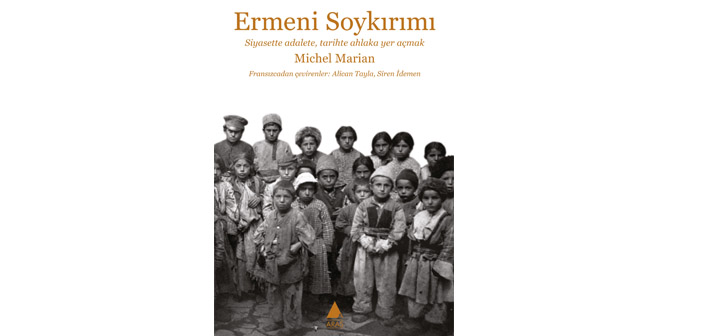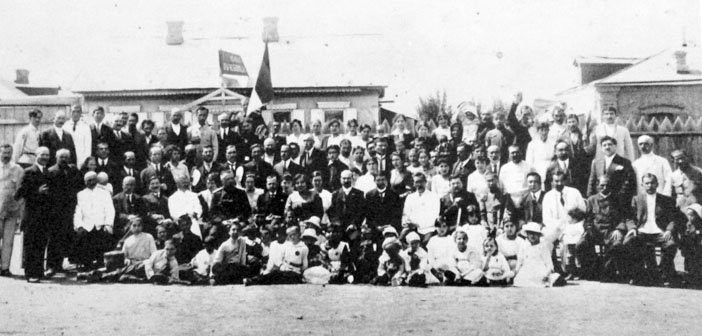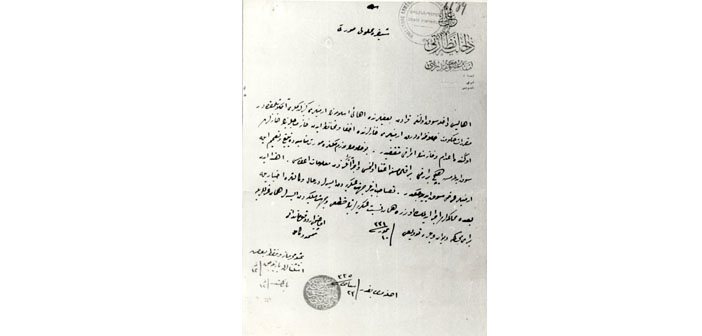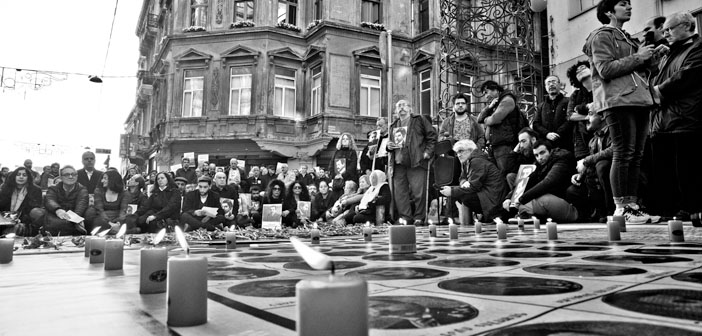We talked to Michel Marian about the centennial of the Armenian Genocide and the developments that might take place in 2016, based on his book on Armenian Genocide which was published in France in 2015.
Marian's family is from Erzurum and he was born and raised in France. Presently, he works in Political Studies Institute in Paris as a professor with PhD in philosophy. In this book published in France in 2015, he meditates on how Armenian question can be resolved by “making room for justice in politics and for morality in history.” Focusing on how an understanding of just and moral politics and history can be built, Marian tells that Turks and Armenians, as two ancient communities who had been living together for centuries, can create a peaceful future together.
We talked to Michel Marian about the centennial of the Armenian Genocide and the developments that might take place in 2016, based on his book on Armenian Genocide which was published in France in 2015.
What do you think about the centennial of the Armenian Genocide? How was 2015?
Armenians' expectations about 2015 was very high indeed, because 1965, the 50th anniversary, was still on their minds. In 1965, hundred of thousands Armenians poured into the streets with demand of justice and broke the silence that had been going on since Treaty of Lausanne. Thus, a new break was made in the struggle for international recognition of the genocide. What happened on the 50th anniversary was an expected development and because of that, its effect was intense. On the other hand, centennial was an event that had been expected by everybody. Armenian government stated that they want to host many presidents on April 24. And Diaspora was expecting international public opinion, especially Barack Obama, to recognize the genocide officially. However, Turkish government wasn't willing to take new steps after Erdoğan's surprising condolence message in 2014, because people might consider this as an irreversible development which will eventually lead to recognition. Except from France and Cyrpus, which recognized the genocide before, no country recognized the genocide in 2015, which was a gain for Turkish government. Though this is an achievement for Turkish government in the short term, it will go through hard times in terms of Armenian question, considering that the countries like Austria and Czech Republic, where there is no powerful Armenian lobbies, recognized the genocide. Prominent international figures like Pope Francis, German President Joachim Gauck and Israeli President Simon Peres talked about the moral obligation of reminding the sufferings of Armenians and ending the denialism which prevents peace and continues to harm.
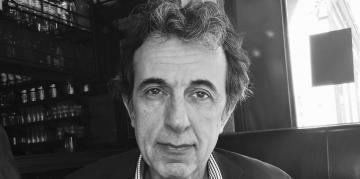
What are your anticipations about 2016?
In fact, 2016 is also a centennial; 1916 was the year when Armenians were rooted out of their homelands, where they had been living together with other communities for centuries. Today, unfortunately, it is impossible to develop a collective memory about the places like Der Zor, which is a place that comes to mind while talking about the genocide, because we are still receiving news about massacres in Der Zor that are perpetrated by ISIS. On the other hand, this is the first year of the second century after the Armenian Genocide. Struggle for recognition will continue. Armenia's struggle for international recognition of the genocide will continue increasingly. There will be different events like scientific meetings, or families of the survivors and Turks who saved Armenians might come together. However, in Armenia, struggle for democracy will be more prominent than the struggle for recognition in 2016. Perinçek case paused Diaspora's struggle for imposing penalty on the denial of the genocide. Restoring the confiscated properties emerged as a new way for constituting justice. This is indeed an opportunity, but I guess, it will be limited to personal attempts and confiscations after 1950. I think that we should pursue a complete recognition of the genocide; starting to use the old Armenian names of places and streets and changing the hateful rhetoric in history books will be natural consequences of this struggle. Developing the dialogue between Armenians and Turks will be important, while we struggle against denialism of the state. Cooperation between democrat Turks and Armenians is getting stronger and I find this valuable. On April 25, 2015, we held a memorial ceremony with democrat Turks. We were not many, but we managed to appear together publicly.
What do Hrant Dink's ideas and suggestions concerning Armenian-Turkish relations mean today?
Hrant Dink's teachings are confirmed: though the politics is a tall order and open to setbacks, if you speak from your heart and address to humanity, if you are honest and self-consistent, you could proceed within the society. Despite Hrant's personality and crucial points of his time, Hrant's capacity to express the truth beyond the conventional discourse and to materialize the peace, along with his ideas and method, made great contributions. Today, Hrant Dink represents the connection between Turks and Armenians. In France, the anniversary of Hrant's death became a day when Armenians and Turks come together for constituting peace. For instance, on January 19, we held a meeting on the price that the journalists paid for the sake of the truth.
As an Armenian living in France, what can you suggest to democrat Turks?
I don't have a personal suggestion to offer them, because they know what to do in the worrisome political atmosphere in Turkey better than me. I congratulate them for defending the truths about the Armenian Genocide despite the intense denialism which is the source of the ongoing violence there. Kurdish MP's positive attitude toward the Armenians, moderation in CHP's attitude toward Armenians and the active and positive attitude of young Armenian generation in Turkey are important and sound developments. I think the missing part is this: Muslims' reaction to denialism. If they begin to react, this would contribute to Turkey's image in Europe. However, I am not sure if democrats can make a contribution to this development, given the polarization in the struggle for power in Turkey...
Did Diaspora react to your book?
In Diaspora, loyalty to Armenians is measured by reactions to Turks and it is not easy to get rid of this attitude. I think that the ideas like mine are considered with a fear concerning the identity. However, in Marseilles, a jury consisting of Armenians awarded the book that was authored by me and Ahmet İnsel. This year, I hadn't received any award. The reason, I think, is the fact that Armenians tried to give an impression of unity among Armenians in 2015. Many people in Diaspora know that the way to keep the memory of Anatolian Armenians alive is to develop a dialogue. In June issue of Nouvelles d’Arménie, one of the most important Armenian publications in France, there was a special report that was prepared with the prominent figures of Armenian-Turkish dialogue. This alone shows that we are going through an important transformation.
Do you consider writing another book on Armenian-Turkish relations?
It is too early for that. There are two possibilities. If the political atmosphere changes in a positive way, it is not difficult to imagine some meetings in the restored Armenian churches in current Kurdish region, especially in Diyarbakir, where people from Diaspora and Muslims come together for sound and productive discussions. This unexpected and rich experience must be told and we should keep dreaming about it. The second possibility is to develop the last chapter of this book and work on the common mythological and historical references in Armenian, Turkish, Greek and other small Asiatic societies.


